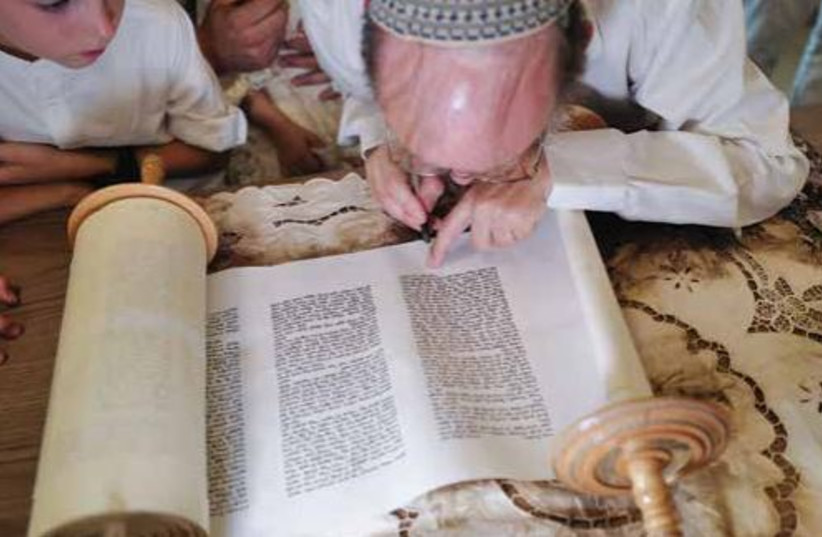This week’s Torah portion, Tzav, continues to deal with the laws of sacrifices, following the previous portion, Vayikra. These two portions essentially present most of the laws relating to sacrifices detailed in the Torah. The sacrifices discussed in this portion are the same sacrifices detailed in the previous portion, except that the previous portion pertained to the person bringing the sacrifice, while this week’s portion addresses the laws pertaining to the priests offering the sacrifice in the Temple.
One of the sacrifices addressed in this portion is Korban Ha’toda, the Thanksgiving offering. A person who has been in distress and was rescued from danger, such as someone who was in captivity and emerged safely, or someone who was seriously ill and recovered, brings a sacrifice to the Temple through which he expresses his gratitude to God, who guides the world and delivered him from distress.
When we think of expressing gratitude, our thoughts usually go to instances of severe distress. Indeed, in prominent moments like those, we strongly feel the need to say “Thank you.” This need sometimes finds expression in prayer, in song, in the desire to give something in return for our sense of relief.
Sometimes we cannot even find a specific address to which to direct our feelings of gratitude, as a familiar Israeli song says: “Thank you, world, for bringing me here.” The “world” does not bring us here. Such gratitude can be directed to our parents, to God, to friends and teachers from whom we have learned. But even such charming confusion represents the human need to express gratitude.
This need finds an interesting expression in the Hebrew phrase “asir toda” – a captive of gratitude. A person who feels gratitude toward others feels as if he is bound in the chains of gratitude. The way to release oneself from these chains is to express gratitude – in speech, in writing, or in action. The Thanksgiving offering is a wonderful expression of feelings of gratitude that a person feels toward God, who delivered him from distress.
But in fact, if we examine the small details of our lives, we find so many positive aspects that we have been blessed with, that we feel gratitude much more powerfully. One way to reinforce feelings of gratitude is through the blessing over food. A person who pauses for a moment before putting food into his mouth, and blesses God for the sustenance, strengthens his awareness of the goodness present in his life, and thus, through the expression of gratitude, adds happiness and joy to his life.

We can illustrate this through the blessing said after eating bread: “Blessed are You, Lord... who sustains the entire world with His goodness, grace, kindness, and mercy.” Let’s pay attention to the words. God sustains the entire world with His goodness, kindness, and mercy, but here is an additional detail – with grace!
Let’s imagine that all the foods we eat were of the same appearance. The tastes and nutritional qualities of the foods remained as they are, but the appearance of all food was the same: gray and square. Could we enjoy such foods? Do we appreciate the pleasant appearance of the ripe red tomato and the orange carrot? Do we notice how much grace the green of the cucumber adds compared to the color and shape of the eggplant, and that both differ from the color and shape of the pepper? The food we eat is full of grace, beauty, and variety. We live in a world filled with beauty. Look at the flower blooming on the side of the road and see how much beauty and grace it contains.
We live life in haste, in a hurry, chasing after money and dreaming that it will make us happy, and meanwhile, we miss out on the wonderful beauty that lies before our eyes in every corner.
And we haven’t even talked about more complex beauty and grace – the excitement of a new beginning and the satisfaction of a successful day; the blossoming of spring and the respectable majesty of the rain; freedom and law; the innocence of childhood and the serenity of old age; pleasant aromas and touching music. The simplest lives are filled with good, and when we contemplate them, we are filled with deep feelings of gratitude – gratitude to God who has granted all this abundant good!
The writer is rabbi of the Western Wall and Holy Sites.
